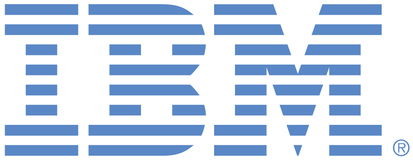
This is an IBM Automation portal for Integration products. To view all of your ideas submitted to IBM, create and manage groups of Ideas, or create an idea explicitly set to be either visible by all (public) or visible only to you and IBM (private), use the IBM Unified Ideas Portal (https://ideas.ibm.com).
Shape the future of IBM!
We invite you to shape the future of IBM, including product roadmaps, by submitting ideas that matter to you the most. Here's how it works:
Search existing ideas
Start by searching and reviewing ideas and requests to enhance a product or service. Take a look at ideas others have posted, and add a comment, vote, or subscribe to updates on them if they matter to you. If you can't find what you are looking for,
Post your ideas
Post an idea.
Get feedback from the IBM team and other customers to refine your idea.
Follow the idea through the IBM Ideas process.
Specific links you will want to bookmark for future use
Welcome to the IBM Ideas Portal (https://www.ibm.com/ideas) - Use this site to find out additional information and details about the IBM Ideas process and statuses.
IBM Unified Ideas Portal (https://ideas.ibm.com) - Use this site to view all of your ideas, create new ideas for any IBM product, or search for ideas across all of IBM.
ideasibm@us.ibm.com - Use this email to suggest enhancements to the Ideas process or request help from IBM for submitting your Ideas.

While we are not likely to implement this idea in its proposed form, we are considering some enhancements to the management of certificates that could achieve a similar aim.
The cryptographic provider used by IBM MQ varies according to platform, IBM i and z/OS use integral operating system libraries, HP NSS uses OpenSSL and Linux, UNIX and Windows platforms use GSKit libraries (which are provided with MQ). Java and .NET use system provided classes to provide their cryptographic capabilities. Whilst we endeavour to ensure that the same set of features are available across all platforms, regardless of the underlying cryptographic provider, sometimes it is not possible to achieve this.
On IBM i, keystores managed by DCM (e.g. *SYSTEM) have their passwords stored in a special system file;
https://www.ibm.com/support/knowledgecenter/ssw_ibm_i_74/rzahu/rzahudcmbackuprecover.htm
Alternatively, when using a keystore copied from a distributed GSKit platform, whilst the .kdb keystore format is compatible there is no platform support for reading the stash files. Keystore passwords can only be passed directly via API and for this reason IBM MQ implements its own password stash file.